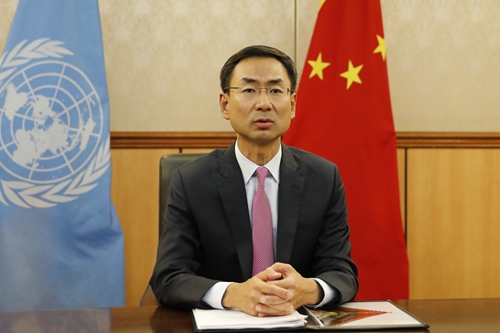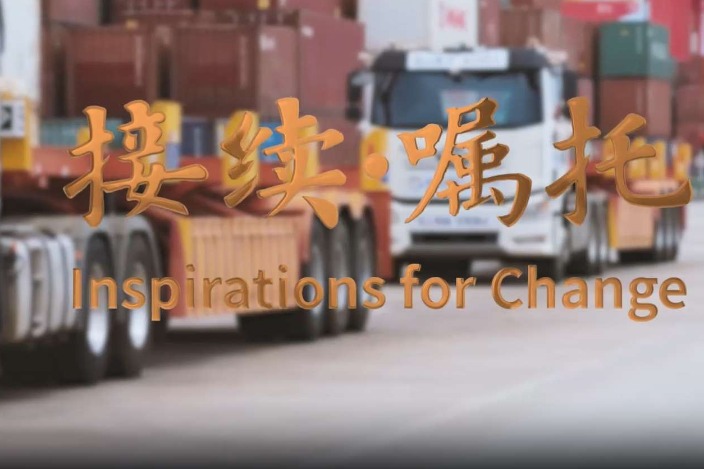Beijing supports talks to end conflict in east DRC


China's representative to the United Nations, Geng Shuang, strongly condemned the attack against a Chinese company on July 3 that resulted in the deaths and disappearance of Chinese citizens in the Democratic Republic of the Congo.
This incident is the tip of the iceberg of the chaotic situation in the east of the DRC. How to ease the tensions and help settle the complicated political situation there is of significance not just to the stability of the country, but also to the prevention of an all-out war in the region.
Speaking at the UN General Assembly on Monday, Geng urged all armed groups in the DRC to lay down their weapons and withdraw from occupied areas immediately.
In just three months, more than 500 people have been killed in the country by armed groups such as the March 23 Movement, which has rapidly expanded its presence in the region and even advanced into South Kivu.
A cease-fire between the armed groups is of vital importance for talks aimed at ending the chaotic situation. China supports the efforts of the United Nations Organization Stabilization Mission in the DRC, known as MONUSCO, to assist peace building and consolidating efforts in the South Kivu province.
China calls for a greater sense of urgency and more effective measures by the relevant parties to ensure the safety of peacekeepers as a string of attacks against MONUSCO personnel have taken place. China supports "reasonable adjustment" to MONUSCO's mandate to ensure its coordination and complementarity with the regional force.
The meeting between Rwanda's Foreign Minister Vincent Biruta and his Congolese counterpart Christophe Lutundula in the Angolan capital Luanda for high-level consultations in March this year was a sign that talks could pave the way for security and peace.
Angola has been trying to organize a summit for the presidents of Rwanda and DRC to meet, which will hopefully ease the tensions growing along the border between the two countries.
China supports both the Luanda-led peace process and the East African Community-led Nairobi Process, as both are trying to engage all stakeholders, including the DRC government, Rwandan government, armed groups, civil society organizations, and the international community in finding a peaceful resolution to the conflict in the east of the DRC through dialogue and negotiation. It is to be hoped these efforts bear fruit as soon as possible.
































